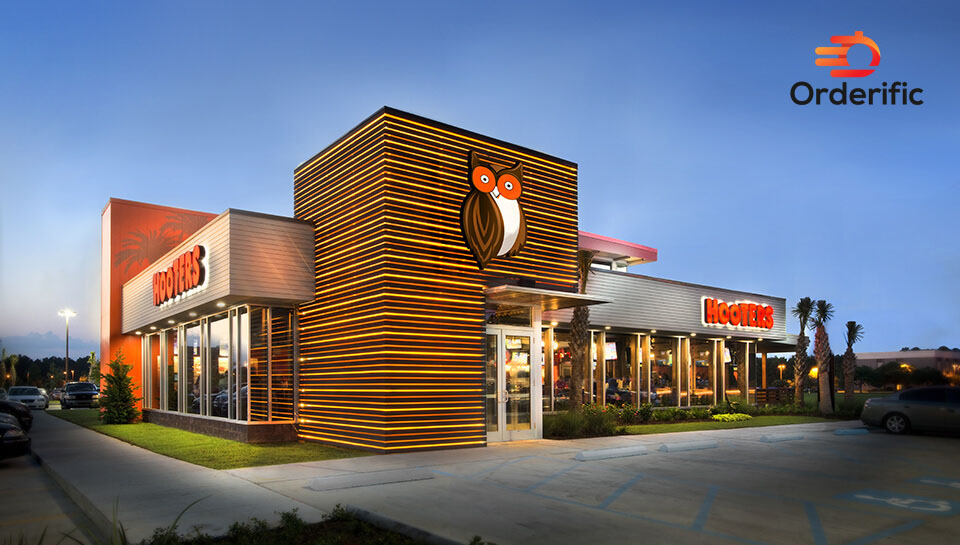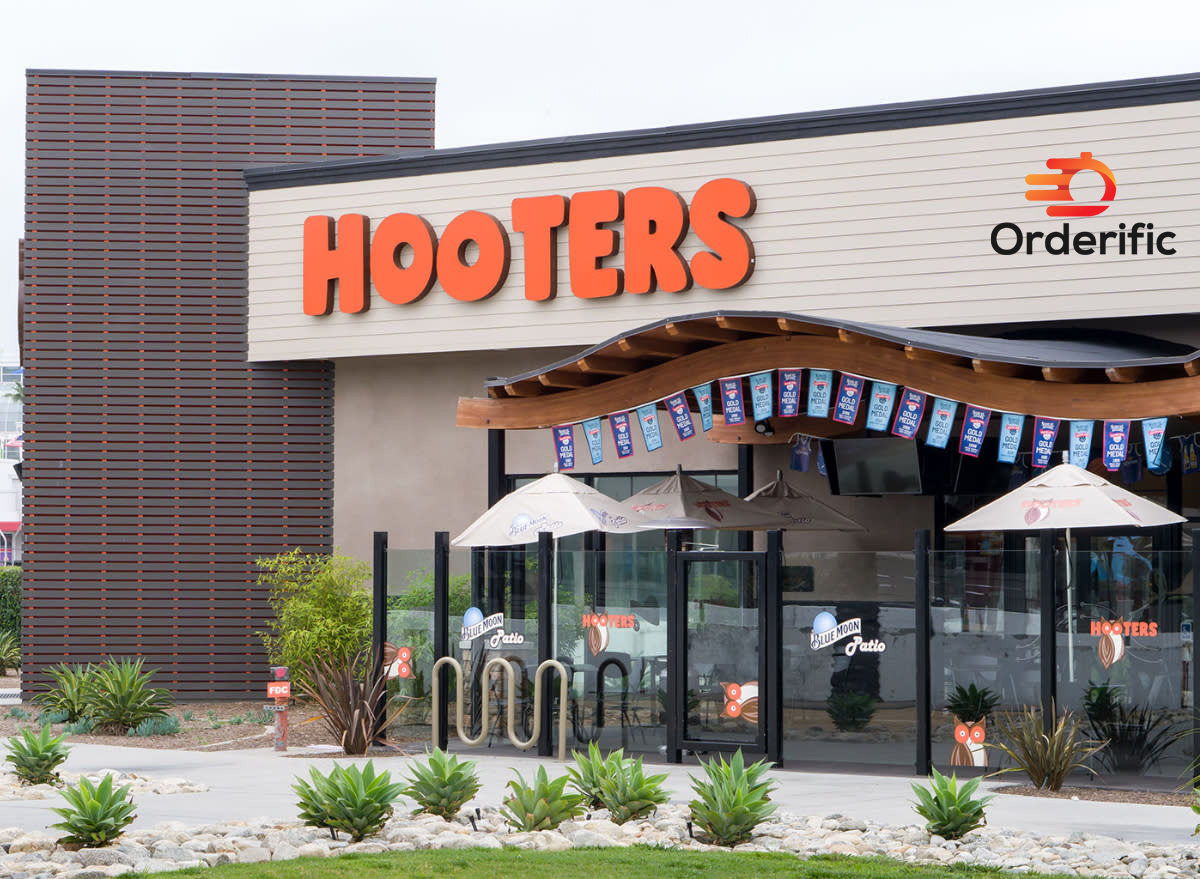Dive into the fascinating world of Hooters and the leadership that drives it. Imagine walking into a bustling Hooters restaurant – the hum of chatter, the clinking of glasses, and the warm, inviting ambiance. The Hooters CEO is at the helm of this well-oiled machine, a figure revered in the restaurant industry. Their expertise and strategic direction have set the stage for the success story that Hooters is today. In the following sections, we’ll explore the journey of the Hooters CEO, their leadership style, and their significant contribution to Hooters’ franchise success. So, sit back, enjoy the ride, and prepare to gain insights into the dynamic world of Hooters and its exceptional leadership.
Who Was The CEO Of Hooters?
Delving into the illustrious past of Hooters, we encounter a name that stands out – Coby Garrett Brooks, the former president and CEO of Hooters, Inc. and Naturally Fresh, Inc. Back in 2003, Coby ascended to these esteemed positions, three years before the passing of his father, Robert H. Brooks, Hooters’ Chairman.
The aftershock of his father’s demise saw Coby gain control of his father’s companies, earning the title of Chairman for his father’s estate. However, this victory was not without its trials. A dispute with his father’s widow, Tami, over the elder Brooks’ estate distribution saw Coby inherit just 30 percent of his father’s wealth.
In a surprising twist, Coby took to the screen, featuring on a CBS reality TV show, ‘Undercover Boss,’ in an episode featuring Hooters. His journey with Hooters ended in 2011, following the company’s sale, pushing him into a new adventure as a franchisee of Twin Peaks, another cheekily dubbed restaurant chain.
Coby made an encore appearance on ‘Undercover Boss,’ alongside Randy DeWitt, the CEO of Twin Peaks. He played a ‘rude patron’ to check if employees were well-versed in handling such challenging customers. His journey concluded with a generous donation of $15,000 to a bartender at that location.
However, since his departure from Hooters, Coby was succeeded by Terrance M. Marks, marking a new chapter in the Hooters legacy. Coby’s leadership journey was further documented in several feature episodes, where he imparted wisdom to other CEOs, solidifying his enduring influence in the industry.
Who Is The CEO Of Hooters?
The baton of Hooters’ executive leadership now rests in the capable hands of Sal Melilli. Melilli, a seasoned veteran in the restaurant industry, currently serves as the Chief Executive Officer. His arrival at Hooters’ helm heralded a new era for the brand, bringing fresh perspectives and innovative strategies.
Leaving his footprints in snowy New York, he embraced the sun-drenched vistas of Tampa Bay, trading the towering skyscrapers for the Hooters headquarters. His expertise spans various roles – from a key player in targeted advertising to the vice president of many distinguished brands.
Transitioning into his role at Hooters, he has displayed an unwavering commitment to maintaining Hooters’ iconic status in the United States while also setting sights on expanding the brand’s reach. His approach blends traditional values with modern trends, creating a fusion that the Hooters franchise warmly embraces.
Distinctly, the vision of Melilli, the Hooters CEO, stretches beyond the typical CEO role. It’s a testament to his passion for the brand and commitment to its growth. His leadership paints a vibrant picture of Hooters’ future, projecting a bright horizon for this cherished brand.
About The CEO Of Hooters
Terrance M. Marks, a seasoned veteran in the restaurant industry, today stands as the President and CEO of Hooters of America, LLC. His portfolio boasts over 435 Hooters restaurants across 44 states and 28 foreign nations. Marks’ leadership prowess emanates from his profound experience, including his stint as the President and CEO of The Pantry, Inc., where he oversaw 1,650 convenience stores across 13 states.
Before The Pantry, Inc., Marks left an indelible mark on Coca-Cola Enterprises, Inc., having spent 21 years in various roles. His journey culminated with him assuming the mantle of the President of CCE North America, steering the sales, marketing, finance, operations, and more of the $15 billion enterprise.
As the CEO of Hooters, Marks has shown an unwavering commitment to nurturing this iconic brand. Leadership style is marked by a unique blend of experience and dynamism, propelling Hooters upward. His anticipation for this role is palpable, with him expressing the thrill of returning to Atlanta and the excitement of joining the Hooters team. His enthusiasm for the brand is infectious, manifesting in his vision for Hooters’ growth.
He acknowledges the brand’s success, attributing it to the efforts of everyone who contributed to its development. As he takes the reins, Marks is set to shepherd Hooters into its next growth phase. The future of Hooters under Marks’ stewardship promises an exciting journey that continues to uphold the brand’s reputation for great American food, a fun environment, and the iconic Hooters Girls. Marks’ appointment as the CEO of Hooters marks a new chapter in the brand’s illustrious history, promising a future as vibrant as its past.

Hooters CEO’s Leadership Style
The leadership style of the Hooters CEO can be likened to a masterful symphony, harmoniously stringing together diverse elements. Like the conductor’s baton, strategic foresight guides the brand through tumultuous markets. The CEO’s acumen creates a resonating melody, infusing life into the Hooters franchise.
Under their leadership, Hooters thrives, much like a well-tended garden under an expert gardener’s gentle yet firm hand. The CEO’s vision is the nourishing sunlight, invigorating the brand. Their decisiveness is the pruner’s blade, trimming ineffective strategies to foster robust growth.
The Hooters CEO’s leadership is distinguished by their ability to blend tradition with innovation. This fusion manifests in Hooters’ operations, like an artist bringing a canvas to life with bold strokes of creativity and subtle hues of practice. Balancing the old with the new, the CEO ensures the brand’s relevance in an ever-evolving market.
Empathy is another cornerstone of their leadership style. Like a seasoned sailor understanding the sea’s currents, the CEO appreciates the diverse perspectives of the Hooters team. Recognizing the potential in every individual, they foster a work environment where talent can germinate, flourish, and bear fruit.
In conclusion, the Hooters CEO’s leadership style is a dynamic blend of strategy, innovation, tradition, and empathy. This unique blend has charted the course for Hooters’ success story, turning the restaurant into a household name. Through their leadership, the Hooters brand sails confidently towards a promising future.
Impact of Hooters CEO on the Restaurant Industry
The impact of the Hooters CEO on the restaurant industry paints a vibrant tableau of innovation and transformation. Picture this: The restaurant industry, buzzing with competition, punctuated by Hooters’ distinct orange and white emblem. The Hooters CEO is at the center, steering the brand with unwavering resolve and strategic insight.
- Influence on Branding: The CEO’s innovative strategies have redefined the Hooters brand identity. Their vision has embellished the unique Hooters experience, making it more than just a restaurant but a household name.
- Growth and Expansion: Hooters has embarked on an audacious journey of growth and expansion under its leadership. Tampa Bay to South Carolina, Hooters locations have popped up across the United States and beyond.
- Revitalizing Menus: Their culinary prowess has breathed new life into Hooters’ menus. Tailoring to evolving consumer tastes, the CEO has introduced a fusion of traditional and modern food options.
- Empowering Staff: They’ve placed a significant emphasis on staff empowerment. Acknowledging the Hooters team’s invaluable role, they’ve fostered an environment where every Hooters Girl can thrive.
- Engaging in Community: Their focus is on more than just business growth. The CEO has led Hooters to engage with local communities, strengthening the brand’s and its patrons’ bond.
The Hooters CEO stands as a beacon of transformation in the restaurant industry. Their approach intertwines tradition and innovation, crafting a strategy accommodating constant market fluctuations. As a result, Hooters continues to leave its mark on the industry, guided by the CEO’s unwavering vision and commitment.
The CEO’s impact is a testament to their leadership, carving a path that others in the industry aspire to tread. This tale of success is far from over. As Hooters sails forward under the CEO’s leadership, one can only anticipate the exciting innovations.
Conclusion
In the captivating narrative of Hooters CEO, we’ve intimately explored the journey and impact of the Hooters CEO. Their strategic foresight and innovative approaches have harmonized tradition with modernity, creating a symphony of success in the bustling restaurant industry. This narrative has painted a vivid picture of their leadership prowess and cast light on their transformative influence on Hooters’ brand identity, menu revamps, and community engagement. As we conclude, remember that, like the Hooters CEO, your restaurant can thrive amidst the industry’s fierce competition. Orderific integrates with leading POS systems and payment partners to automate tasks, customize customer experience, and boost your restaurant’s revenue. For a taste of how Orderific can revolutionize your operations, schedule a FREE DEMO today.
FAQs
Has anyone owned a Hooters franchise? Is it profitable?
Yes, owning a Hooters franchise can be profitable, with success largely dependent on location, management, and market trends.
Are Hooters degrading to women?
No, Hooters promotes a positive work environment for everyone and values the contributions of all staff, including the Hooters Girls.
What do you think of Hooters?
Hooters offers a unique dining experience, blending good food, a fun atmosphere, and friendly service distinctively.
What’s wrong with taking kids to restaurants like Hooters?
There’s nothing inherently wrong; it depends on personal values, cultural norms, and the child’s maturity and understanding.













